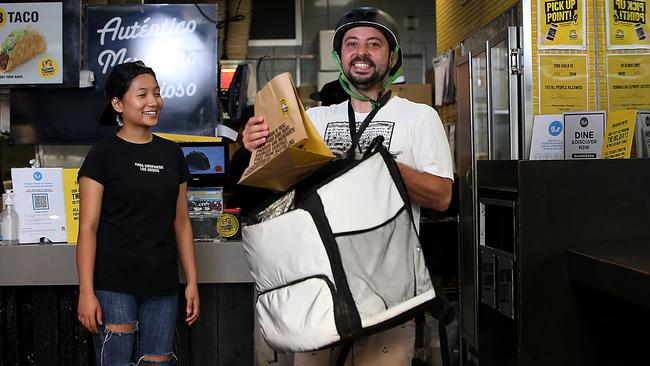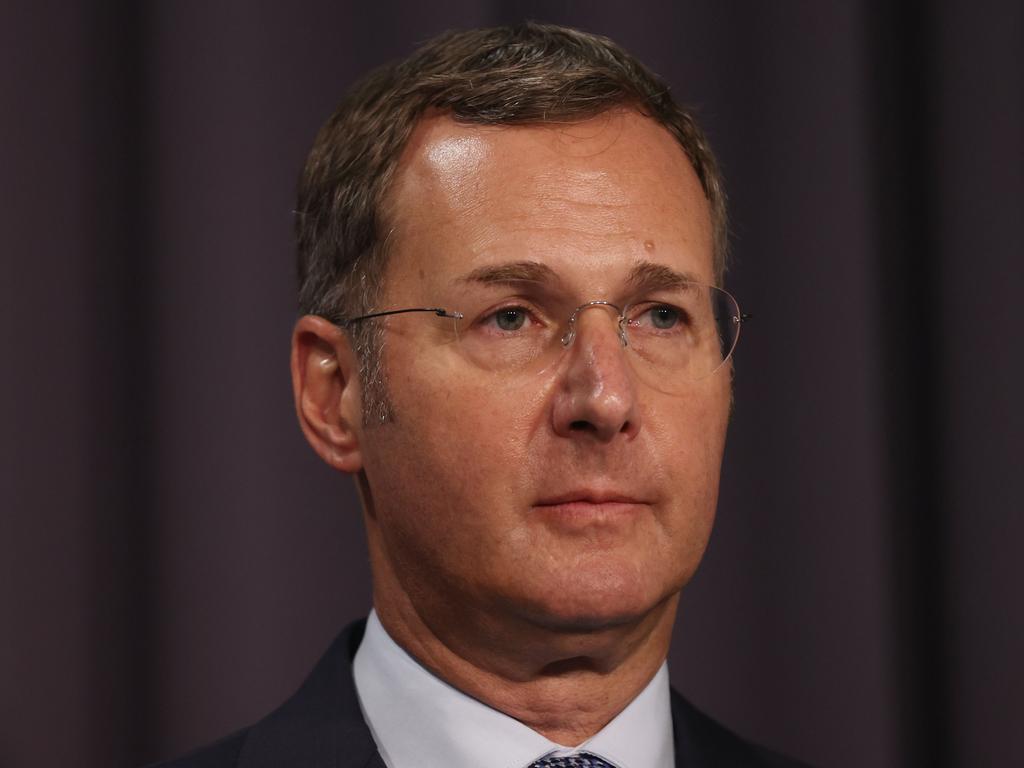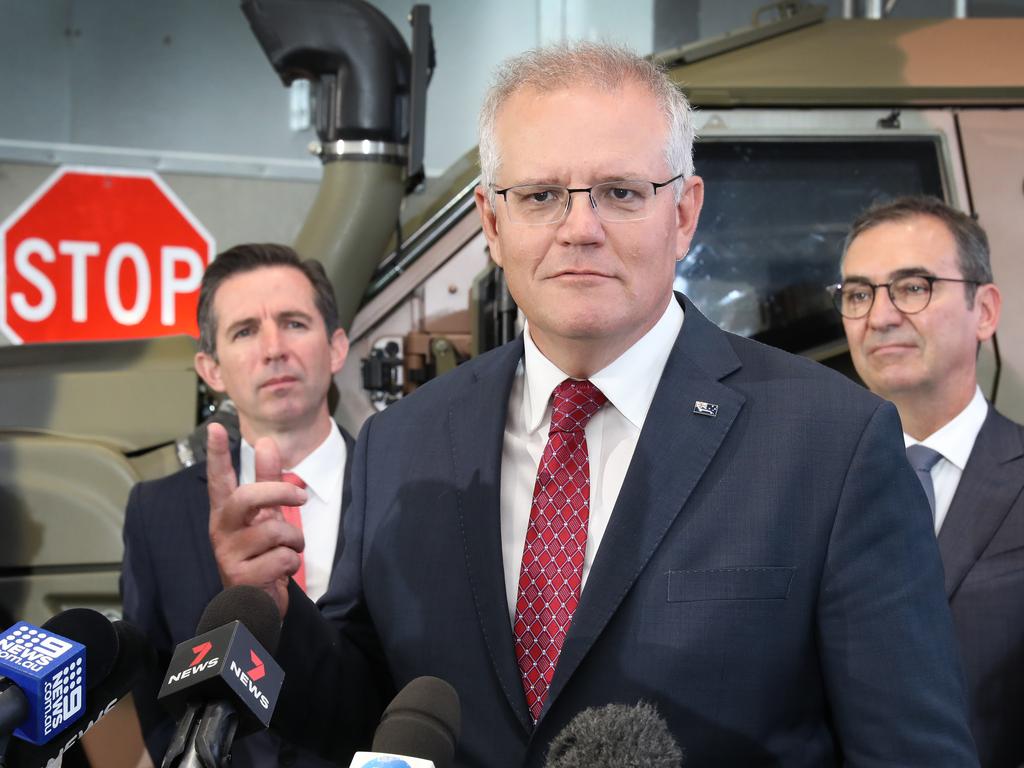Uber takes bigger slice of jobs market
Uber has emerged as Australia’s second largest employer in a new report on its booming Eats division.

Uber has emerged as Australia’s second largest employer in a new report on its booming Eats division, undermining Labor and union claims the digital platform’s workers are underpaid and frustrated with their conditions.
Uber Eats delivery workers, whose numbers have expanded more than eight-fold to 59,000 since 2016, typically earned $21.55 an hour after costs last year, almost 9 per cent more than the federal minimum wage, according to a detailed analysis carried out by Accenture.
More than 80 per cent of its workers said they were happy with gig-style work, while 90 per cent specifically said the flexible nature of work hours helped them balance other commitments, including second jobs and study.
Amid concern about the growth of “insecure” work, Labor leader Anthony Albanese in February said the Fair Work Commission should have the power to make rules for “employee-like” forms of employment, which could threaten Uber’s business model.
Uber Eats Australia general manager Matt Denman said there were “very few jobs that offered the kind of flexibility you get with Uber Eats, or allow you to start earning as quickly, and these findings show how valuable those benefits are to many accessing on-demand work”.
The Uber-commissioned report, Making Delivery Work for Everyone, revealed the app was critical for jobs during the pandemic, pointing out that 60 per cent of respondents “found it difficult to access traditional employment which comes with barriers such as resumes, interviews and prior experience requirements”.
More than three-quarters of delivery workers were not eligible for JobKeeper because of their visa status.
The Accenture report, which also found annual spending on food delivery had surged 550 per cent since 2016 to $2.6bn, comes as the US company faces increasing attacks from unions and worker-rights advocates, who say it pays workers too little for too insecure work.
The Transport Workers Union in March claimed food delivery riders earned as little as $5 a delivery, while rideshare workers earned an average of $12 an hour.
National secretary Michael Caine called on the federal government to regulate the “gig economy” in March after Britain’s supreme court ruled Uber workers were entitled to a minimum wage and holiday pay.
“It should not be up to Uber to decide how few rights gig workers get. It is up to the federal government to act now and ensure delivery riders and rideshare drivers are not ripped off and are safe in their jobs,” Mr Caine said.
Accenture’s analysis of 6.9 million deliveries made by more than 9000 delivery workers between August and December found delivery workers using bicycles and motorbikes earned more than $21.90 an hour, more than those with cars ($21.74).
“These figures include all online time over the hour, which includes time between deliveries, and does not account for any additional income earned via other delivery apps during the hour,” Mr Denman said.
Separate analysis of Uber’s traditional rides business published in early 2019 revealed the platform generated work for 60,000 drivers, implying Uber’s total workforce exceeded 120,000, about 2.5 times that of the Commonwealth Bank.
Coles, widely considered the nation’s second largest employer behind Woolworths, employed 118,000 workers last year, according to its annual report.
The report found 79 per cent of delivery people worked an average 30 hours or less a week, and more than one-quarter of delivery people spent 10 hours or less a week on the Eats platform.
Working as a delivery rider for Uber Eats has been a lifeline for Lua Portela, 31, since he moved to Australia from Brazil last February.
Mr Portela quit his marketing job in San Paolo, packed his bags and moved to Sydney after spending two years saving enough money to make the move.
But four weeks later, the coronavirus pandemic started to take its toll on Australia. The economic downturn left Mr Portela among thousands of people unemployed.
Delivery driving for Uber Eats helped him find his feet again.
“I would not have been able to pay my bills or live in Australia if it wasn’t for Uber Eats,”
he said. “This job has saved so many lives, mine included.”
Living in a sharehouse with two flatmates in Bondi Junction in Sydney’s east, Mr Portela said it fits into his lifestyle, and he likes being able to choose the hours and days he works.
Mr Portela is also able to study his business degree part time.







To join the conversation, please log in. Don't have an account? Register
Join the conversation, you are commenting as Logout